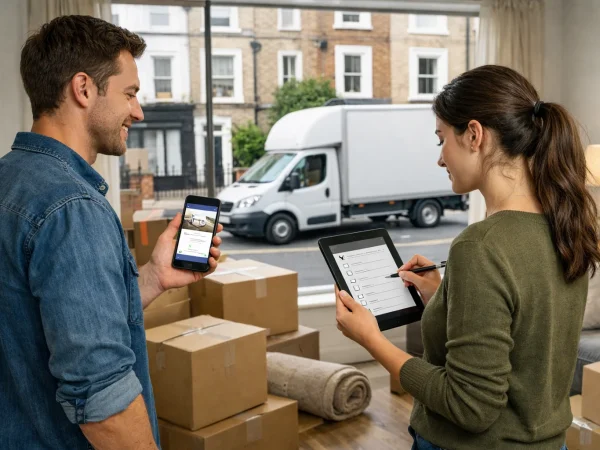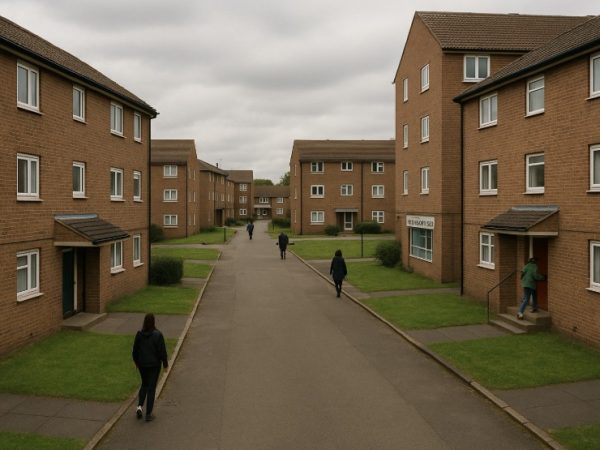
I Own My House Outright and Want to Buy Another UK
Owning your home outright is a significant financial milestone, giving you stability and flexibility.
If you’re considering purchasing a second property in the UK, you have several options available. Whether you’re looking for an investment property, a holiday home, or a place for family members, the right financial strategy is essential.
This guide will explore the best ways to fund your second property purchase, including using equity, remortgaging, and alternative financing options.
What Are My Options If I Own My House Outright and Want to Buy Another in the UK?

Owning your home outright puts you in a strong financial position when looking to buy another property.
Without an existing mortgage, you have more flexibility in how you fund the purchase. There are several options available, each with its own advantages and considerations.
The right choice depends on your financial situation, long-term goals, and whether the second property is for personal use or investment.
1. Buying with Cash
If you have sufficient savings, a cash purchase can be the simplest way to buy a second property.
Paying in full means you don’t have to worry about mortgage repayments, interest rates, or lender restrictions. It also speeds up the buying process, making you a more attractive buyer to sellers.
Without the need for mortgage approval, transactions tend to move faster, often leading to a better price negotiation.
However, using cash to buy another property can tie up a significant portion of your finances.
This might limit your ability to invest in other opportunities or cover unexpected expenses.
If you rely heavily on savings for this purchase, it’s important to ensure you have enough funds remaining for emergencies, home maintenance, and other financial needs.
2. Remortgaging Your Existing Home
One of the most common ways to fund a second property purchase is by remortgaging your current home.
Since you own it outright, you may be able to borrow against its value to raise capital for another home.
Remortgaging allows you to release equity from your current property, giving you a lump sum that can be used as a deposit or full payment for the second home.
The amount you can borrow depends on your home’s value, income, and credit history.
While remortgaging provides access to funds without selling your existing home, it does mean taking on monthly mortgage repayments.
Interest rates and lender fees can also impact the overall cost of borrowing. Before choosing this option, it’s important to compare deals from different lenders and assess how the repayments will affect your financial stability.
3. Equity Release for Over-55s
For homeowners aged 55 and over, equity release schemes offer another way to fund a second property purchase. There are two main types of equity release:
- Lifetime Mortgage: This allows you to borrow a percentage of your home’s value while continuing to own it. The loan, plus interest, is repaid when you sell the property or pass away.
- Home Reversion Plan: With this option, you sell a portion of your home in exchange for a lump sum or regular payments, while retaining the right to live in the property rent-free.
Equity release can be beneficial if you don’t want to take on a traditional mortgage or sell your existing home.
However, it can reduce the inheritance you leave behind and may affect eligibility for means-tested benefits.
Since interest accumulates over time, the overall cost of borrowing can be high, so professional advice is recommended before proceeding.
4. Buy-to-Let Mortgage
If you are purchasing a second home as an investment, a buy-to-let mortgage is an option to consider.
This type of mortgage is specifically designed for properties that will be rented out. Lenders will assess your expected rental income and typically require it to cover at least 125-145% of the mortgage repayments.
Buy-to-let mortgages usually require a larger deposit than standard residential mortgages, often around 25% or more. Interest rates can also be higher, and lenders may impose stricter affordability checks.
Additionally, there are tax implications to consider, as rental income is taxable, and recent changes in mortgage interest relief rules have impacted landlords.
While buy-to-let properties can generate long-term income and capital appreciation, managing tenants, property maintenance, and market fluctuations are factors that need to be considered before choosing this option.
5. Bridging Loans
A bridging loan is a short-term financing solution that can be used to buy a second property before securing long-term funding.
This type of loan is commonly used when buying a property at auction, purchasing before selling another home, or waiting for mortgage approval.
Bridging loans are typically more expensive than standard mortgages, with higher interest rates and shorter repayment terms.
They are best suited for buyers who have a clear repayment strategy, such as selling an existing property or refinancing once long-term funding is secured. While they offer quick access to funds, the high costs mean they should only be used when necessary.
6. Joint Ownership or Family Assistance
If buying a second property alone is financially challenging, joint ownership with a family member, partner, or friend can be a practical alternative.
This allows multiple buyers to share the cost of the property and mortgage repayments.
Another option is a guarantor mortgage, where a family member (usually a parent) agrees to cover the mortgage payments if the main borrower is unable to.
This can help secure better mortgage terms, particularly for buyers with limited income or credit history.
While joint ownership reduces financial burden, it also means shared responsibilities and decision-making.
A formal agreement should be in place to clarify ownership rights, financial contributions, and exit strategies in case circumstances change.
Which Option Is Best for You?
The best option for buying a second home depends on your financial situation, risk tolerance, and long-term goals. If you have the funds available, a cash purchase offers simplicity and full ownership without debt.
For those who need financing, remortgaging, equity release, or buy-to-let mortgages provide various ways to leverage existing assets. Bridging loans and joint ownership can also be viable alternatives depending on individual circumstances.
Before making a decision, it’s advisable to consult a mortgage broker or financial advisor to explore the best solution based on your personal and financial needs.
What Are the Reasons for Buying a Second Property?

Purchasing a second property is a significant financial decision, but it can be a rewarding investment depending on your goals.
People buy additional properties for various reasons, ranging from investment opportunities to lifestyle choices. Below are some of the most common reasons why individuals consider buying a second home.
1. Investment and Rental Income
One of the primary reasons for purchasing a second property is to generate rental income. Buy-to-let properties can provide a steady stream of income, especially in high-demand rental areas.
Rental properties also offer long-term capital appreciation, making them a valuable asset for wealth building.
2. Holiday Home or Personal Use
Many people buy a second property as a holiday home in their favourite destination.
Owning a holiday home provides convenience, comfort, and potential cost savings compared to frequent hotel stays. Some homeowners also rent out their holiday properties when not in use, generating extra income.
3. Helping Family Members
Buying a second home for a family member, such as a child attending university or elderly parents, is another common reason. This can provide security and stability for loved ones while also serving as a long-term investment.
4. Downsizing or Retirement Planning
Some homeowners purchase a second property in preparation for retirement. A smaller, more manageable home in a peaceful location allows for an easier transition when the time comes to downsize from a larger family home.
5. Diversifying Investment Portfolio
Real estate is considered a stable investment, and some investors buy second properties to diversify their asset portfolio. Property investments can provide financial security, especially when stock markets are volatile.
Regardless of the reason, buying a second home requires careful financial planning to ensure it aligns with long-term goals and affordability.
Can I Use My Home’s Equity to Buy Another Property?
Yes, if you own your home outright, you can leverage its equity to purchase a second property. Here’s how:
How Equity Release Works?
Equity is the difference between your home’s market value and any outstanding debt. Since you own your home outright, you have full equity. You can access this in two ways:
- Remortgaging: Taking out a mortgage on your current home to free up cash.
- Equity Release (for over-55s): Using a lifetime mortgage or home reversion plan to access tax-free cash.
Pros and Cons of Using Equity
| Pros | Cons |
| Access to a lump sum or regular payments | May reduce inheritance value |
| No need to sell your current home | Interest can accumulate (in equity release) |
| Potential tax benefits | May affect means-tested benefits |
Before proceeding, it’s advisable to seek financial advice to ensure equity release aligns with your long-term financial goals.
Should I Buy a Second Home with Cash or a Mortgage?

Deciding between a cash purchase or a mortgage depends on your financial position and long-term goals.
Cash Purchase:
- Pros: No mortgage repayments, no interest costs, quicker transactions.
- Cons: Ties up a large amount of capital, reducing liquidity for other investments.
Mortgage Financing:
- Pros: Preserves cash reserves, potential tax benefits for buy-to-let properties.
- Cons: Interest costs, monthly repayments, potential credit implications.
If you have enough savings without affecting your financial stability, a cash purchase can be beneficial. However, if you prefer to maintain liquidity, a mortgage might be the better option.
How Does Remortgaging Work for Buying a Second Property?
Remortgaging allows you to release funds from your existing property to finance another purchase.
Steps to Remortgage for a Second Property:
- Property Valuation: The lender assesses your home’s value.
- Equity Calculation: Determines how much you can borrow.
- Affordability Checks: Lenders review your income and credit history.
- Mortgage Offer: If approved, funds are released for your second property.
Key Considerations:
- Interest rates and repayment terms.
- Potential impact on monthly finances.
- Additional fees (valuation, legal, and arrangement fees).
What Are the Costs Involved in Buying a Second Home in the UK?
Owning a second home comes with additional costs beyond the purchase price.
Stamp Duty Land Tax (SDLT) on Second Homes
- If the property price is above £40,000, you’ll pay an additional 3% SDLT on top of standard rates.
Other Costs to Consider:
- Mortgage Fees – Arrangement and valuation fees.
- Legal Fees – Conveyancing and solicitor costs.
- Council Tax – Depending on property use.
- Maintenance & Insurance – Regular upkeep and property insurance.
Budgeting for these costs ensures you’re financially prepared.
Can I Buy a Second Property to Rent It Out?
Yes, many UK homeowners purchase a second property for rental income.
Buy-to-Let Mortgage Requirements:
- Deposit: Typically 25% or more of the property value.
- Rental Income Expectation: Lenders usually require rental income to cover 125-145% of mortgage payments.
- Credit & Affordability Check: Even if rent covers payments, lenders assess your finances.
Considerations for Landlords:
- Property management responsibilities.
- Landlord insurance and legal obligations.
- Potential tax implications on rental income.
What Are the Alternatives to Remortgaging for Buying Another Home?
If remortgaging isn’t suitable, other financing methods can be considered.
Alternative Options
- Bridging Loans: Short-term solution for quick purchases.
- Savings & Investments: Using personal funds to avoid debt.
- Joint Ownership: Buying with family or friends.
- Government Schemes: Some incentives exist for property investment.
Each option has different levels of risk and financial impact.
How Can I Improve My Chances of Getting a Mortgage for a Second Home?

Lenders assess various factors when approving mortgages.
Ways to Improve Approval Chances
- Increase Your Deposit: A larger deposit reduces lender risk.
- Boost Your Credit Score: Pay off debts and ensure bills are paid on time.
- Show Stable Income: Consistent earnings improve mortgage affordability assessments.
- Use a Mortgage Broker: Helps find lenders suited to your financial profile.
Ensuring financial readiness increases the likelihood of securing a favourable mortgage deal.
Conclusion
Buying a second property in the UK when you own your home outright is a significant financial decision.
You can fund the purchase using equity, remortgaging, or alternative financing options. Whether buying as an investment or for personal use, understanding the costs and mortgage requirements is crucial.
Seeking professional financial advice will help ensure you make the best decision for your circumstances.
FAQs
How much deposit do I need for a second home in the UK?
Most lenders require a minimum 15-25% deposit, depending on your financial profile and mortgage type.
Can I avoid paying higher stamp duty on a second home?
Stamp Duty Land Tax applies to second homes, but selling your primary residence within three years may allow a rebate.
Is it better to buy a second home as a primary residence or investment?
It depends on your goals. Primary residences may have fewer tax implications, while investment properties offer rental income potential.
What happens if I sell my main home after buying a second property?
You may be liable for Capital Gains Tax (CGT) if the second property increases in value.
Can I use my pension to fund a second property purchase?
Yes, pension drawdowns or Self-Invested Personal Pensions (SIPPs) can be used, but with limitations.
How long does remortgaging take when buying another property?
Typically 4-8 weeks, depending on lender processing times.
Will my credit score affect my ability to buy a second home?
Yes, lenders assess credit history when approving mortgages or remortgaging applications.





